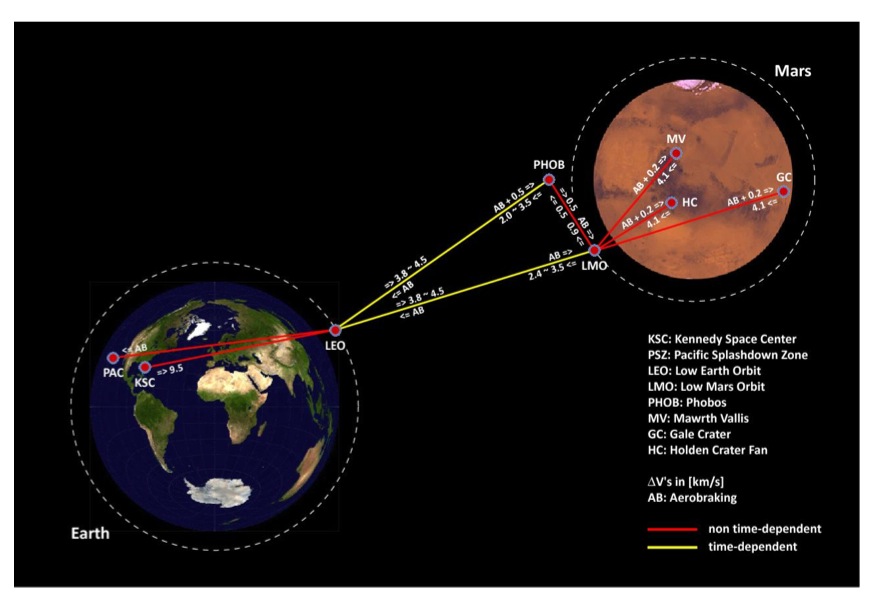MIT Strategic Engineering

Space Systems Logistics
Space Systems Logistics is an active area of research and practice aimed at enabling more effective space exploration and operations. Rather than conducting "one-mission-at-a-time" as has been done in the past, we study how campaigns of human and robotic space missions can be conducted in a more sustainable way. This includes understanding the impact of commonality and reconfigurability, as well as the role that new technologies and concepts may play in future exploration and space operations.
The field of space logistics includes modeling, planning, simulation and optimization of the flow of vehicles (elements), crew, and supply items (cargo/payload) from the landing, manufacturing and refurbishment sites on Earth, through ground processing, launch, in-space operations, entry-descent-and-landing, as well as planetary surface operations. Both the flow of materials and information is studied and coordinated. Research extends into the use of new technologies (such as RFID) and sensor networks for automatic tracking of elements, crew and supply items as well as In-Situ Resource Utilization (ISRU) so that not everything has to be brought from Earth as we explore further and further.
Example: Earth-Mars logistical network with ΔV [km/s] shown along each transportation link:

Our specific contributions to space systems design and logistics include:
- SpaceNet - a NASA-funded and accredited integrated modeling and simulation software environment for modeling space exploration missions and campaigns from a logistics perspective
- Quantifying the impact of modularity, reconfigurability and commonality on space missions; including the impact of temporary scavenging (cannibalization)
- Mission scenario development and modeling of space tugs
- Extracting lessons learned from past human spaceflight missions at NASA
- Developing a Matrix-based approach for visualizing and quantifying the structure of an exploration campaign in terms of pre-positioning, carry-along and resupply strategies
- Developed, prototyped and tested a Rule-based Asset Management System for Space Exploration Systems (RAMSES) ("smart CTB container") as part of a NASA STTR Phase 1/Phase 2 project
- Conducted an expedition to the high Arctic in 2005 to study the potential for remote bases on Earth to serve as analogs for planetary exploration logistics elsewhere
- Functional Decomposition of space habitation for human exploration. This decomposition includes functions of radiation protection and environmental control and life support systems (ECLSS). Working towards a modeling environment we have tentatively called HabNet.
-
MIT Space Logistics Project Website
Interplanetary Supply Chain Management and Logistics Architectures (ISCMLA)
http://spacelogistics.mit.edu/ -
Space Logistics Overview Presentation
October 2006 [PDF] - AIAA Space Logistics Technical Committee (Prof. de Weck served as chair of the AIAA Space Logistics TC from 2008-2010)
-
Space Exploration Logistics Workshop
January 17-18, 2006
Workshop Proceedings
http://spacelogistics.mit.edu/workshops/0106NASASpaceExploration/index.htm
